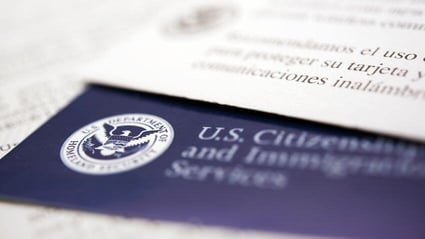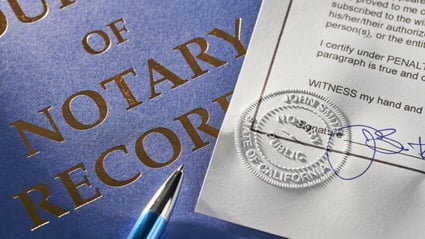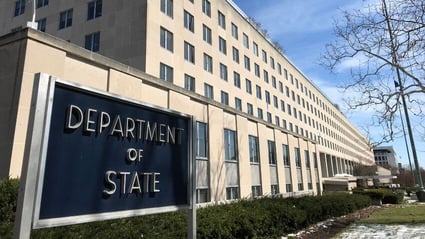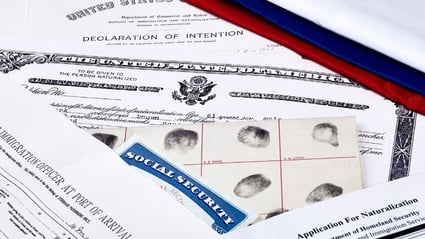How To Apostille Documents From The United States

When dealing with international document verification, whether for employment, education, or immigration, ensuring your documents are recognized across borders is crucial. This is where the apostille comes in. Apostilles are a type of authentication utilized to certify the authenticity of documents intended to enter member states of the Hague Convention of 1961. Essentially, it is a special seal applied by an authority to certify the authenticity of a document so it is accepted in all nations that are part of the convention without any further authentication.
The Hague Apostille Convention simplifies the legalization process of documents to verify their legitimacy internationally. This eliminates the need for embassy or consular legalization if both the issuing and receiving countries are signatories to the convention. Currently, 126 countries are members of this convention, making apostilled documents widely accepted around the globe.
In this article, I will explicitly address obtaining an apostille for documents issued in the United States, including the necessary processes and considerations to help you handle this process efficiently. Understanding how to apostille a birth certificate, marriage certificate, educational degree, or business document is critical to ensure your paperwork is legally accepted in other Hague Convention countries.

Properly separating federal and state documents is essential when choosing the appropriate channel for apostille. Incorrect submissions can result in significant delays or even rejections
WHAT DOCUMENTS CAN BE APOSTILLED?
Navigating the apostille process starts with understanding which documents can be legalized internationally. In the United States, many documents may require an apostille, depending on their intended use abroad. Common types of documents that often need to be apostilled include:
- Birth Certificates: Essential for proving identity and nationality or for use in family matters like inheritance or adoption.
- Marriage Certificates: Validate marital status when moving or travelling with a spouse.
- Academic Diplomas: Necessary for studying abroad or validating educational credentials in another country.
- Corporate Documents: Includes articles of incorporation, patents, or trademarks necessary for conducting business internationally.
- Court Orders: Useful in legal disputes, child custody cases, or other judicial matters that cross international borders.
- Notarized Documents: These can include powers of attorney, affidavits, and other officially notarized documents.
Understanding the distinction between federal and state-level documents is crucial, as it affects where and how you should apply for an apostille:
- State-Level Documents: These are documents issued by state entities, such as universities, state courts, or local government offices. The apostille for these documents is typically obtained from the Secretary of State's office in the state where the document was issued. Each state has its own procedure and fee structure for apostilling documents.
- Federal Documents: These are documents issued by a federal agency of the United States government, such as the U.S. Department of Homeland Security, the Federal Bureau of Investigation (FBI), or the Internal Revenue Service (IRS). Federal documents require an apostille from the U.S. Department of State in Washington, D.C.
Differentiating between federal and state-level documents is vital because it dictates the appropriate channel for seeking the apostille. Incorrect submissions can lead to delays or rejections, so it is important to identify the source of your document before beginning the apostille process.

Before submitting, ensure that your documents meet all the prerequisites for an apostille. Verify that the notarization is complete and complies with the requirements of the state where it will be apostilled
UNDERSTANDING THE U.S. APOSTILLE PROCESS
To understand the apostille procedure in the United States, you must first comprehend several crucial processes, from document identification to final apostille receipt. Below is a step-by-step guide to help ensure your documents are properly legalized internationally.
IDENTIFY THE TYPE OF DOCUMENT
Determining whether a document is federal or state is the first crucial step in the apostille process. Federal documents are issued by U.S. federal agencies (e.g., documents from the Department of Justice, Federal Bureau of Investigation, etc.). State authorities issue state documents (e.g., birth certificates, marriage licenses, university diplomas). This distinction is vital as it dictates where to apply for the apostille.
WHERE TO APPLY
- State Documents: These should be taken or mailed to the Secretary of State's office in the state where the document was issued. Each state will have its own office that handles apostilles.
- Federal Documents: These need to be apostilled by the U.S. Department of State in Washington, D.C.
PREPARING YOUR DOCUMENTS
Before submission, ensure that your documents meet all the prerequisites for an apostille. Most state documents need to be notarized before they can receive an apostille. Make sure the notarization is complete and conforms to the state's requirements where it will be apostilled.
SUBMISSION PROCESS
Documents can generally be submitted in person, by mail, or, in some cases, online. The availability of these options varies by state and by the type of document:
- In-Person: Quicker processing, with some offices offering same-day service.
- Mail: Check the specific mailing instructions and address for the Secretary of State or U.S. Department of State.
- Online: Some states offer electronic submission for certain documents, expediting the process.
FEES AND PAYMENT METHODS
The fee for an apostille can vary depending on the state or the federal agency. Typically, state fees range from $5 to $20 per document, while fees at the federal level might be higher. Acceptable payment methods often include checks, money orders, and sometimes credit cards.
PROCESSING TIME
Processing times can vary widely:
- State-level: Ranges from same-day to a few weeks, depending on the state and method of submission.
- Federal-level: This typically takes longer, from a few days to four weeks, depending on workload and document type.
RECEIVING THE APOSTILLE
An apostille is a certificate either attached to your document or provided as a separate document, depending on the issuing authority. It will include a stamp or seal that certifies the document's authenticity, recognized by member countries of the Hague Convention.

Federal documents, such as FBI background checks and IRS tax returns, need to be apostilled by the U.S. Department of State in Washington, D.C
SPECIAL CONSIDERATIONS
Certain documents require additional attention and handling when apostilling in the U.S. due to their specific nature or the authority that issues them. Below are key considerations and instructions for federal documents, educational documents, and complex cases involving non-English text or double certification.
FOR FEDERAL DOCUMENTS
- Understanding Federal Documents: Documents issued by federal agencies, such as FBI background checks, IRS tax returns, or Social Security Administration documents, are considered federal documents and require an apostille from the U.S. Department of State in Washington, D.C.
- Submission Guidelines: When preparing to apostille federal documents, ensure they are complete and include any necessary attestations or official signatures from the issuing agency.
- Contacting the U.S. Department of State: It is advisable to check the current requirements and processing times directly with the U.S. Department of State, as these can change and may have specific requirements or forms that need to be included with your submission.
FOR EDUCATIONAL DOCUMENTS
- Obtain an official true copy of the credentials from the university registrar. The registrar should then execute an affidavit attesting to the document's validity before a notary public. Frequently, the business offices of colleges and universities have public notaries;
- Take the document, with the notarial certificate, to the state Notary Public Administrator for authentication. Suppose the country where the document will be used is a party to the Hague Apostille Convention. In that case, the state Notary Public Administrator will affix an Apostille certificate without further authentication. See the Hague Conference on Private International Law Apostille Page for a current list of countries party to the treaty. The treaty is in force in many countries throughout the world;
- The state Notary Public Administrator will affix a state authentication certificate if the country is not a party to the Hague Apostille Convention. You should then send the document to the Authentications Office of the Department of State, following the instructions on that office’s web page;
- If necessary, obtain authentication of the U.S. Department of State seal at the foreign embassy in Washington, D.C. The embassy in Washington, DC, of the country in which the document is to be used, can tell you if this is required.
COMPLEX CASES
- Documents with Non-English Text: Documents not in English may need to be translated before they can be apostilled. The translation typically needs to be certified as accurate and may need to be notarized.
- Double Certification: Some papers may require double certification—first by the state where they were issued and then by the federal government, especially if they are to be used in a country that does not participate in the Hague Apostille Convention.
RECOMMENDATIONS FOR EXPEDITING THE PROCESS
- Express Services: Some states offer expedited service options for an additional fee. If you are in a hurry, check whether this service is available and consider using it to shorten the processing time.
- Early Submission: Submit your documents as early as possible, particularly if you are dealing with a tight timeline. Early submission can help avoid delays, especially during busy periods.
- Preparation Services: Consider using a professional service specializing in document preparation and apostille. These services can manage the process efficiently and promptly and ensure all requirements are met.

The apostille process, although systematic, can encounter common issues that may result in delays or document rejections. Here’s how to recognize and effectively resolve these problems
COMMON ISSUES AND HOW TO RESOLVE THEM
The apostille process, while systematic, can present several common issues that might cause delays or rejection of documents. Here's how to identify these problems and effectively resolve them.
INCORRECT NOTARIZATION
- Problem: A frequent issue in the apostille process is incorrect notarization, which can include missing seals, signatures, or using a notary whose commission has expired.
- Solution: Ensure that the notary public follows all relevant state guidelines for notarization, including the use of a proper seal and signature. Always check the notary's commission to ensure it is current. Before the notarization, confirm that the notary understands the specific requirements for documents that will be apostilled.
DOCUMENTATION BEING REJECTED
- Problem: Documents may be rejected for various reasons, including incomplete forms, lack of necessary supplementary documents, or incorrect document format.
- Solution: Double-check that all forms are filled out completely and correctly. Review the specific requirements for apostille documents in the state or at the federal level where you are applying. Ensure that any supplementary documents, such as translations or additional legal certifications, are included. Use the checklist provided by the issuing authority to make sure all parts of the submission meet the required standards.
DOCUMENTS NOT ACCEPTED BY THE RECEIVING COUNTRY
- Problem: Even with an apostille, the receiving country may not accept some documents due to additional requirements or specific legal standards.
- Solution: Contact the embassy or consulate of the country where the documents will be used to understand their specific requirements for foreign documents. This may include translations, additional certifications, or specific forms accompanying the apostilled document.
DELAYS IN PROCESSING
- Problem: Delays can occur due to incorrect submissions, high demand, or administrative inefficiencies.
- Solution: To avoid delays, submit documents well before they are needed. Ensure all submissions are correct and complete to avoid returns or additional queries. During busy periods, consider using expedited services if available. Stay informed about current processing times by checking the relevant authority's website or contacting them directly.
LOSS OF DOCUMENTS
- Problem: There is a risk of lost documents in transit, especially when sent by mail.
- Solution: Always send documents using a traceable mailing service that confirms delivery. Keep copies of all submitted documents, and consider having backups notarized in case the originals are lost. If a document is lost, contact the mailing service for tracking details and inform the issuing authority of the situation.
By anticipating these common problems and preparing solutions in advance, you can navigate the apostille process more smoothly and efficiently, ensuring your documents are legalized without delay or complication.

By carefully following the instructions in this article, you can significantly reduce the likelihood of delays and rejections and save financial resources
CONCLUSION
Managing the apostille procedure in the United States may be difficult initially, but it becomes manageable with the proper knowledge and planning. This blog series offers a step-by-step approach to understanding and properly carrying out the apostille procedure in the United States, ensuring that your documents are legally accepted in Hague Convention countries.
The key to a successful apostille process is comprehensive preparation and knowledge of the unique criteria for federal and state-level papers. By carefully following the instructions outlined in this article—from determining the type of document to understanding where and how to submit your documents for apostille—you may reduce the possibility of delays and issues.
Remember that each document has complexities, and the requirements may differ slightly from state to state. Double-checking these facts before submitting, looking into expedited service options if you need more time, and ensuring all documents are properly notarized and prepared will all assist in speeding up the process.
As you move forward with apostilling your documents, remember these insights and ideas to help you confidently navigate the process. If difficulties emerge, realize that they are only part of the process of effective document legalization. With what you've learned here, you're well-prepared to handle the apostille procedure and guarantee your documents are ready for foreign use.
BEST OF THE EXPAT WORLD
If you want the best intel from the expat world, including profitable offshore opportunities, little-known tax-saving strategies, and hard-won insights on immigration, passports, and Plan-B residencies, all delivered to your inbox every single week, then join our daily correspondence, EMS Pulse ™ . Currently enjoyed by over 84,000 expats and expat-hopefuls worldwide. Fill in the form below to join our newsletter free:







